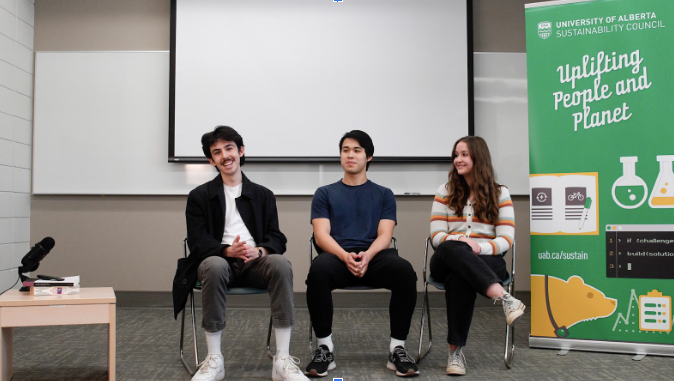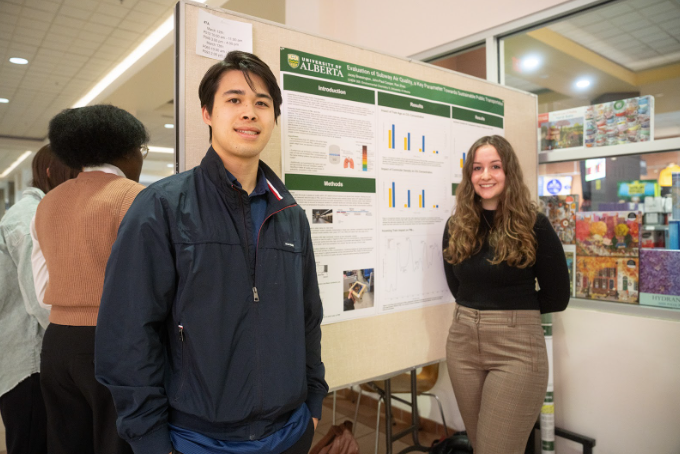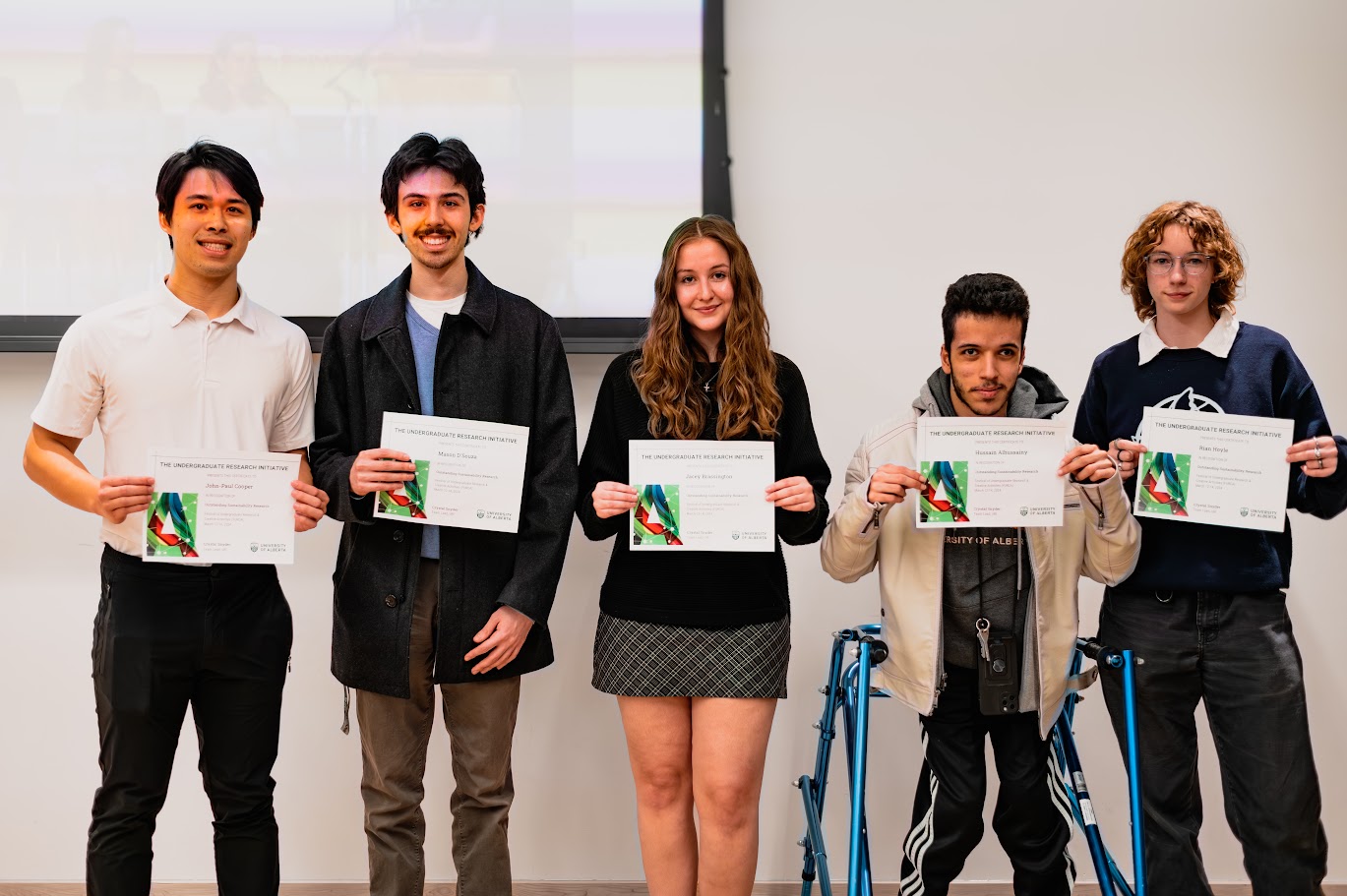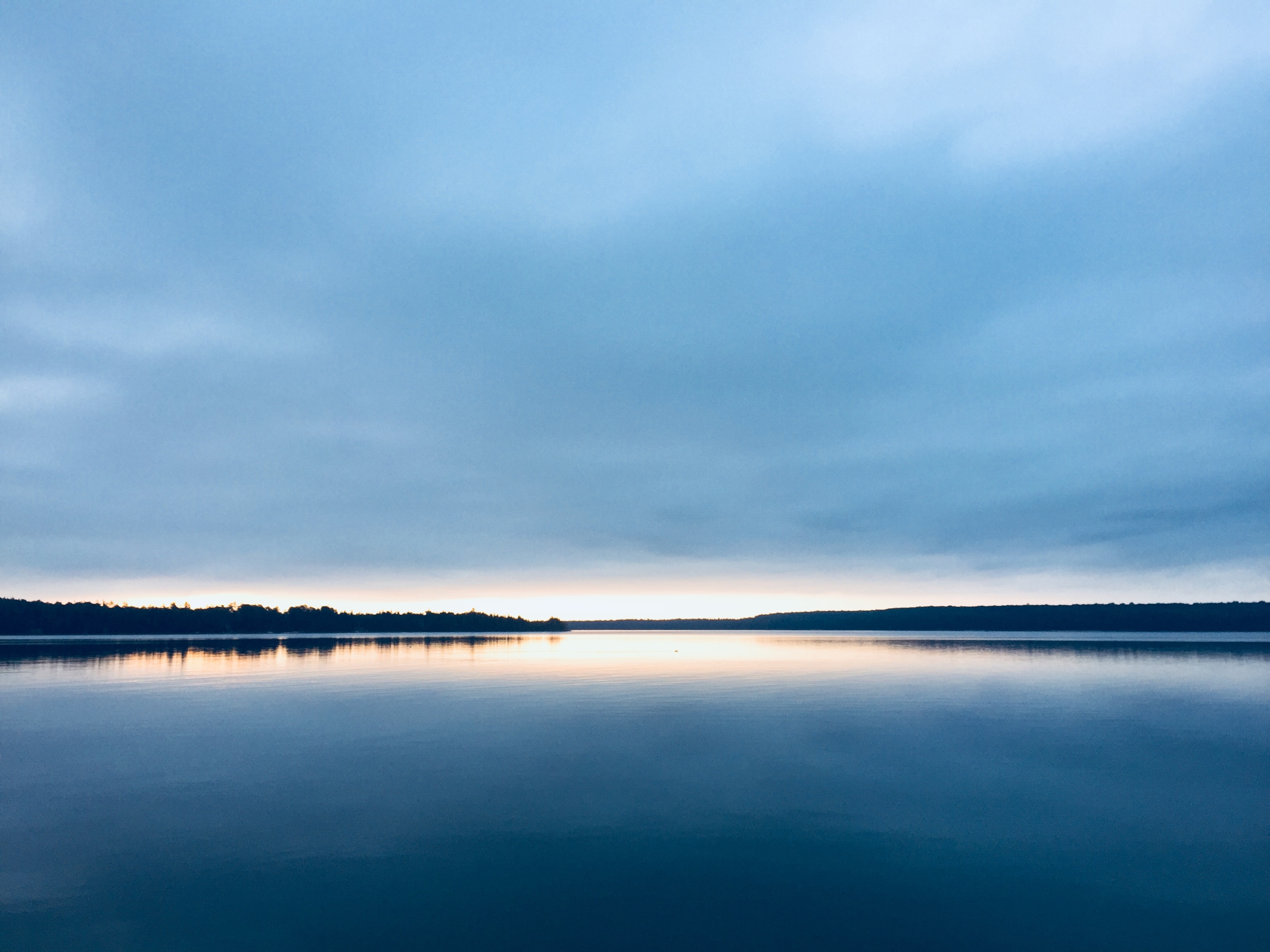Leading the Way: Two Award-Winning Student Projects in Sustainability

Outstanding Sustainability Award recipients at FURCA 2024, from left to right: Mason D’Souza, John-Paul (JP) Cooper, and Jacey Brassington.
The Festival of Undergraduate Research and Creative Activities (FURCA) is an annual showcase celebrating the creativity, talent, and hard work of University of Alberta undergraduate students. Each year, it offers students the opportunity to share their research with students, faculty, and alumni in a supportive, low-pressure environment. Students from various faculties present their projects in the form of posters or oral presentations, with a chance to win some cash. The Sustainability Council is an annual sponsor and collaborator and awarded the Outstanding Sustainability award to three exceptional projects. We delve into the inspiring work of two of these projects, focusing on their contributions to sustainability.
One standout project came from Mason D’Souza, Mohamad H. Al-Jabiri, Amanda Hanashiro Moraes, Ran Zhao, and Wolfgang Jäger from the Faculty of Science. Their research tackled the environmental impact of polyvinyl chloride (PVC) pyrolysis. PVC is a widely used plastic with challenging recycling issues. The team investigated the harmful emissions released when PVC is burned, which can negatively affect the environment. “People often burn PVC without considering the toxic chemicals it releases,” Mason explained. Their work aims to identify these emissions and contribute to sustainable waste management solutions, reflecting a crucial aspect of environmental stewardship.
Another noteworthy project was conducted by John-Paul (JP) Cooper, Jacey Brassington, and their supervisor Dr. Ran Zhao, also from the Faculty of Science. Their research focused on assessing air quality within Edmonton’s LRT system, highlighting how daily commutes impact the air we breathe. “As frequent LRT users, we wanted to investigate the air quality ourselves,” JP shared. This project extended their environmental chemistry term project, demonstrating how classroom learning can address real-world sustainability challenges. Their work underscores the importance of understanding and improving urban air quality for a healthier environment.
Both teams highlighted the significant role their professors, lab members, and academic networks played in their success. Mason, for instance, found Dr. Wolfgang Jäger and his PhD student, Mo, instrumental in navigating the complexities of his research. "Their support ranged from guiding me through experimental protocols to assisting with academic writing," he explained. In a similar vein, JP and Jacey appreciated the guidance of Dr. Ran Zhao and the collaborative spirit of their classmates, which greatly enriched their research experience.
One common theme across both projects was the steep learning curve involved in conducting research for the first time. Mason mentioned how daunting it can be to manage quality assurance protocols and experimental designs, especially when working on projects that contribute to someone’s PhD thesis or a publication. However, with the right support network, these challenges became manageable. “Although it’s very daunting, it’s also very accomplishable,” he reflected.
FURCA also provided these students with essential skills in scientific communication. They learned to present their complex research in a way that was both accessible and engaging to a diverse audience. “The most valuable skill I gained from FURCA was learning to present my research to an audience that wasn’t familiar with it,” Mason noted. Jacey added, “It was validating to communicate all the hard work we did to people from different backgrounds.”

From left to right, John-Paul Cooper and Jacey Brassington present their posters during the 2024 FURCA event.
When it came to choosing between a poster or oral presentation, both teams had different experiences. Mason’s team preferred the poster format, finding it allowed for more personal and interactive discussions with attendees. On the other hand, JP and Jacey initially opted for an oral presentation but ended up presenting a poster due to space constraints. In hindsight, they appreciated the switch. “It made us really understand what we wanted to communicate,” JP remarked.
As these students continue their academic journeys, the lessons learned from their FURCA experiences will undoubtedly shape their future endeavors. Whether through further research, professional development, or continued efforts in environmental sustainability, their contributions exemplify the spirit of innovation and collaboration that FURCA aims to foster at the University of Alberta.
Are you an undergraduate student interested in showcasing your research? The Call for Abstracts for FURCA 2025 will open in November 2024. Visit the Undergraduate Research Initiative page closer to the date for more details.


